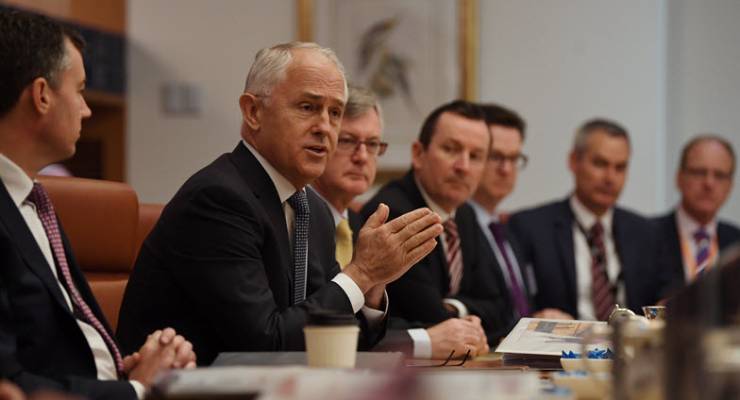
It will soon be impossible to live in 21st-century Australia without politicians, bureaucrats and security agencies knowing where you are most hours of the day. Not unless you want to abandon the basics of 21st-century living. And even then, good luck.
This is the data the government can collect about you right now, very quickly, with just a form filled out by a junior functionary:
- When you went online and offline from your home address, which is probably when you woke up, left for work, came home from work, went to sleep;
- Whom you called, for how long for, and where you were when you called them;
- When and where you drove on a tollway;
- When and where you got on public transport using a card (you were also filmed by the government at train stations and on public transport);
- Which doctor you go to, and what Medicare Benefits Schedule items were claimed in relation to your treatment, including length of consultations;
- Your census data, which will now be a living document that accumulates all the data the government has on you over your lifetime; and
- Your income — unless you’re wealthy and you can disguise that.
Now Malcolm Turnbull, who imposed mass surveillance on Australians via a data retention scheme that he once claimed to oppose, wants to go further and ensure governments can know where you are any time you are in public and in range of CCTV cameras, using a national facial recognition database designed for use in shopping centres and sporting venues, as well as anywhere else where CCTV cameras have proliferated, such as city streets.
At that point, staying away from CCTV and not using the internet or a phone will be the only way to ensure a politician, or bureaucrat, or security agency doesn’t know where you are and what you’re doing. And even then they can probably make a pretty good guess.
State premiers — the motley crew of Palaszczuk, Berejiklian and Andrews, each of them either heading for electoral defeat or mired in deep problems — have eagerly signed up to what should be dubbed the Politicians’ Panopticon. And remember, the point of the panopticon was to give the inmates the sense that they could at any time be under observation, even if they weren’t.
[Domestic violence needs and deserves the same focus as terrorism]
So what, many will say. For starters, surveillance systems are already abused. In Australia and around the world, police officers routinely abuse surveillance systems for personal purposes (usually, stalking women) — in the last two years there have been a string of prosecutions of Queensland police for misusing surveillance systems. A UK study in 2011 found hundreds of British police misusing police databases, including passing information to criminals. The misuse of the National Security Agency’s highly intrusive surveillance powers by agency staff to stalk women has been admitted by the NSA. The Politicians’ Panopticon will give stalkers, creeps and unethical and corrupt staff in police and intelligence agencies a whole new playground to play in.
And what about future governments? You might have been comfortable with the sainted Barack Obama overseeing a program of mass surveillance in the United States. How do you feel about Donald Trump doing so? Don’t think a Trump-like figure could be elected here at the state or federal level? Nor will it prevent terror attacks. Jihadist terrorists have repeatedly shown they couldn’t care less about the presence of CCTV cameras as they inflicted carnage, nor have those cameras helped to stop them. If people are prepared to die, facial recognition is too little, too late to stop them.
Back in the 1970s, Europe and the United States were wracked with terrorist violence. Nationalist, left-wing, fascist and race-based terror groups killed thousands of people with guns and bombs. The IRA continued its killing spree into the 1990s. We managed to get through that without turning ourselves into a surveillance dystopia. Maybe we had decent politicians back then.








Crikey is committed to hosting lively discussions. Help us keep the conversation useful, interesting and welcoming. We aim to publish comments quickly in the interest of promoting robust conversation, but we’re a small team and we deploy filters to protect against legal risk. Occasionally your comment may be held up while we review, but we’re working as fast as we can to keep the conversation rolling.
The Crikey comment section is members-only content. Please subscribe to leave a comment.
The Crikey comment section is members-only content. Please login to leave a comment.